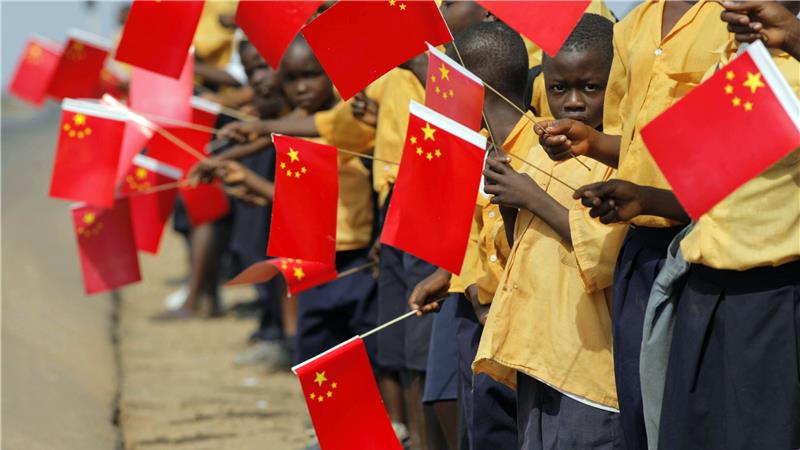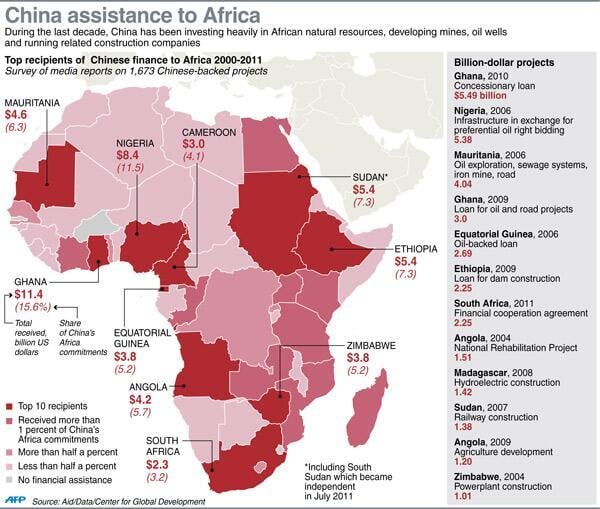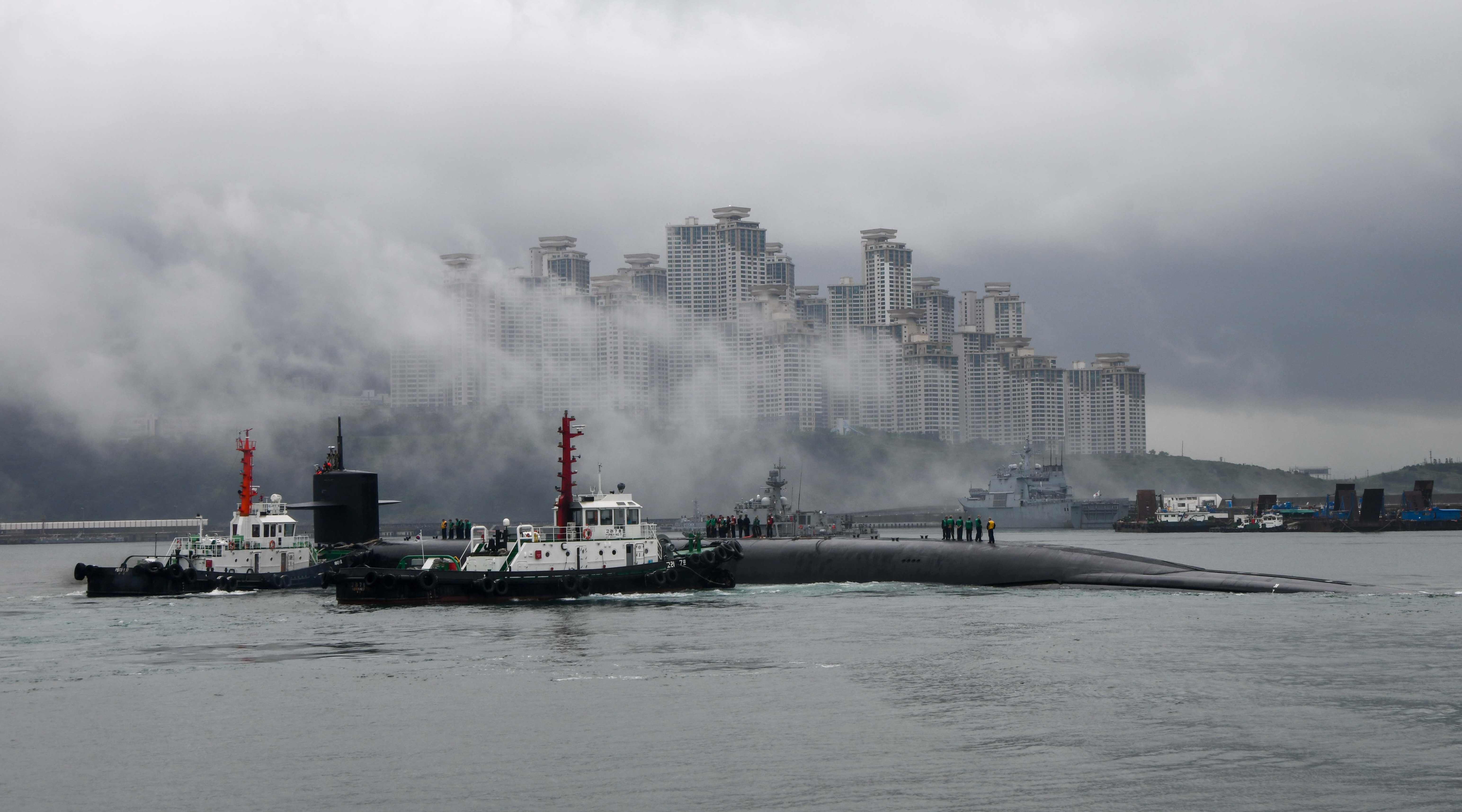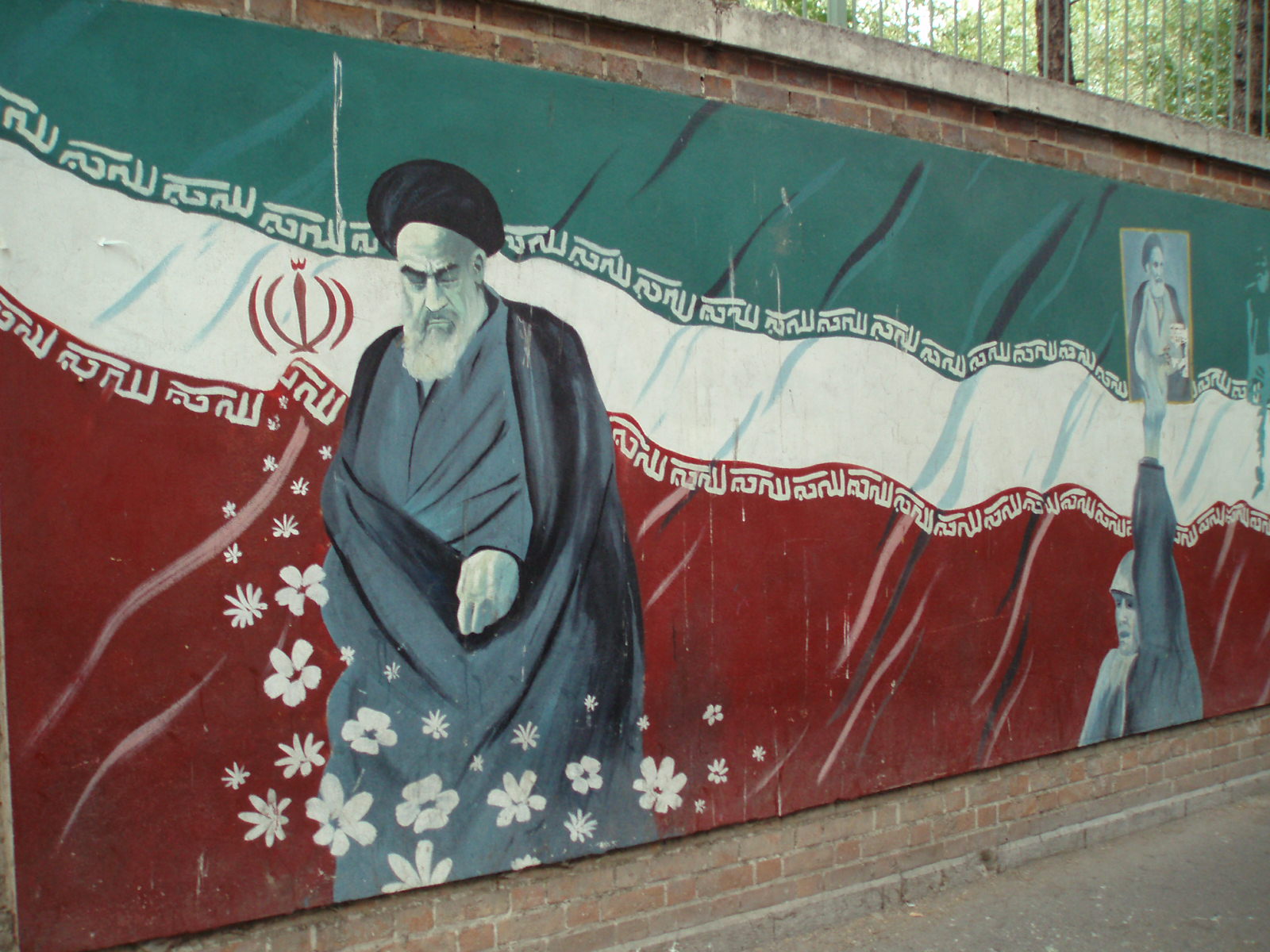
The massive influx of Chinese immigrants and investment in Africa pose significant obstacles to U.S. development and counterterrorism efforts in the region. By preying upon the vulnerabilities of Africa’s many rentier states, Chinese endeavors exacerbate existing tensions over scarce natural resources, buttress corrupt regimes, and further entrench the status quo that has proven a fertile breeding ground for Islamist extremism.
With an estimated one million Chinese nationals currently residing in Africa, some observers worry this phenomenon represents a sort of Chinese neocolonialism. China’s reach across the African continent, however, is fueled not by imperialism but by an uncompromising (if not unscrupulous) sense of pragmatism. Both public and private Chinese firms share a common goal: satisfying the unquenchable thirst for raw materials created by China’s booming population (and to pocket a hefty profit, to boot).
China’s consumption has long outpaced its production, and even a small share of the market that fuels and feeds its 1.4 billion citizens represents a veritable goldmine. Over the past decade, China has increasingly looked to Africa to do just that.
Despite China’s regional and near-global hegemony, it portrays itself as an equal to potential partners in the spirit of “south-south cooperation.” By the same token, partnering with China grants developing nations access to the financial and political resources of a superpower at lightning speed compared with the glacial pace of American foreign aid. Unlike the United States, China’s investments are not contingent upon improvements in a nation’s human rights record. Local governments mortgage away their nation’s priceless natural resources in exchange for much needed infrastructure projects and a meager finder’s fee. And China holds up its end of the bargain, no questions asked.

The danger China poses to African nations (and by extension to U.S. interests) is not ideological. There is little evidence to suggest that China is attempting to refashion its African partners into anything resembling the People’s Republic. Chinese investment does, however, reinforce the preexisting political and economic issues that plague impoverished African nations. Officials elected under dubious circumstances wager their nations’ oil, copper, and zinc in exchange for roads, hospitals, and power grids. Concerned only with lining their pockets, they fail to parlay these projects into long-term development. And when the oil, copper, and zinc are gone, they have nothing left to barter. Without a view to establishing self-sustaining economies, the wealth gap will widen, weak institutions will further atrophy, and fledgling states will crumble and fall, leaving poverty, chaos and extremism in their wake.
To mitigate the risk of terrorism in Africa, the United States must reformulate its aid policies. Former Secretary of Defense Robert Gates has long shared that sentiment, plainly stating, “Development is a lot cheaper than sending soldiers.” The United States demands human rights reforms and democratic institutions (the outcomes of a mature governments and stable economies) before nations are financially or politically capable of accomplishing either. Fostering civil society through targeted aid to public health and education, however, can catalyze those political and economic reactions. Private sector investment should also be encouraged and incentivized. China’s unimpeded expansion is largely due to lack of competition: few American firms are currently willing to brave the uncertainties of operating in Africa.
Finally, the United States should encourage its African counterparts to develop certain protectionist measures around their natural resources: employing and training local labor, profit sharing, and technology transfer, for example. Chinese investment cannot be excised, but it can be more tailored to a host nation’s needs. If Beijing continues unchecked, however, African development will sink deeper into the quicksand of rentierism and political graft. China may not be selling communism, but by maintaining and institutionalizing the status quo, it is perpetuating the political and economic issues that enable terrorist groups to wreak havoc on the African continent.





